A River Runs Through Us: Boston vs. Cambridge
Think Boston and Cambridge are one big happy family? Think again!

Photo by Dominic Vecchione/Eyeem/Getty Images
Edited by Brittany Jasnoff
Read a note from Editor Chris Vogel about the April issue of Boston magazine here.
When was the last time you crossed the river for something other than work? If you’re like most of us, you have to stop and think about that for a minute. After all, to ride on the Red Line from Park Street to Harvard Square, about 3 miles as the crow flies, is to move from one world to another, from big city to charming college town, from Red Sox jerseys to tweed blazers. But it’s not just style and geography that divide us. Companies on both sides of the Charles are currently in an all-out battle for talent, brains, and the chance to change the world, which has brought new life to a once-dormant rivalry. Who’s healthier? Who’s smarter? Who’s greener? Turn the page to find our somewhat subjective, somewhat scientific, but totally entertaining deep dive into the ultimate cross-river competition: Boston vs. Cambridge.
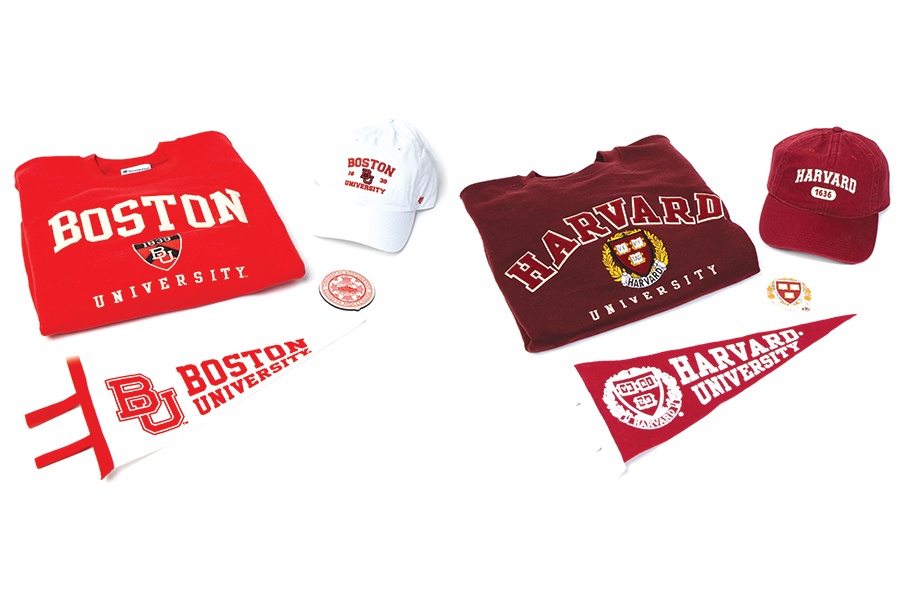
Photos by Mona Miri
Education
Boston University vs. Harvard University
For Boston University: New York Times reporter and BU alum Sopan Deb spent his college days hanging out at Nud Pob, a Thai restaurant on Comm. Ave.
For Harvard: Comedy writer Alexis Wilkinson was president of the Harvard Lampoon during her undergrad years.
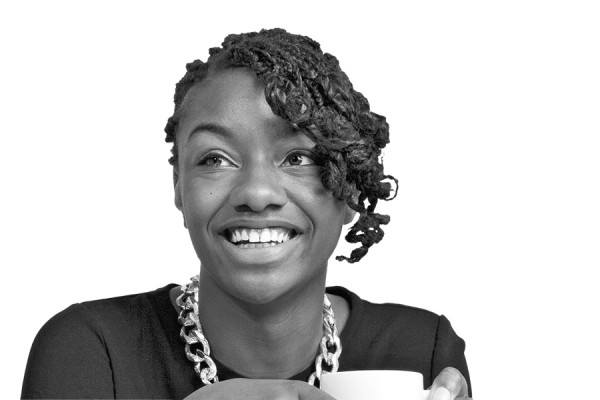
Alexis Wilkinson / Photo by Jesse Burke
Alexis Wilkinson: The Harvard bubble has its advantages. Being on a relatively isolated, close-knit campus allows you to really feel like a part of that school’s culture. I mean, as a freshman living in the Yard, there’s nothing that makes you feel more like you’re at Hogwarts. And all I really wanted was to go into Gryffindor. “Campus” is a very strong word for what BU has. It’s in Boston; it’s spread out all over the place.
Sopan Deb: My favorite part about BU was the location—it’s so central to the city. All of the cool things about Boston are within reach. You have Fenway Park, you have museums nearby—all the things you want to get to.
AW: I will give BU this: You do have to actually work for your grades. The hard part about Harvard is getting into Harvard. We have what’s called a gentleman’s B-plus. If you show up and do most of your work, you’re going to be fine. Unlike BU, they make it really hard for you to screw up. They hold your hand; they will put the academic bottle in your mouth and make you drink it.
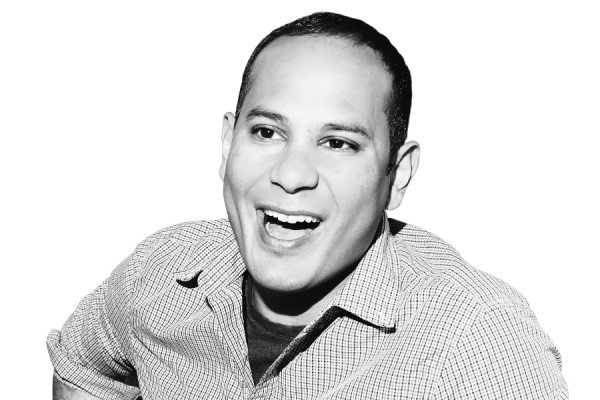
Sopan Deb / Photo by Amy Lombard
SD: That’s just a humblebrag from a Harvard person. I cannot in good conscience say that the academics at BU are superior to Harvard’s. Here’s what I will say: When BU alums, or even BU students, are asked where they go to college, they say Boston University. When Harvard students or Harvard alums are asked where they went to college, they say they went to school in Massachusetts. Boston University alums are not embarrassed to say they went to BU, and that’s where I think BU is superior to Harvard.
AW: If you get into Harvard and BU, you know where you’re going. Let’s not pretend. It’s like the difference between a martini and a Natty Light. Sometimes I do want a Natty Light, you know, but I’m more of a martini girl myself, generally.
SD: The people that drink Natty Light have more friends. —As told to Brittany Jasnoff
Winner: Boston. Harvard may be No. 1 on every academic list, but BU is part of the city, and the city is part of BU. And that’s good enough for us.
Business
The Innovation District vs. Kendall Square
The epicenters of tech, talent, and, yes, innovation, these two areas are on the front lines of the battle between Boston and Cambridge. Which one has the edge?
Companies based there
The Innovation District: Finance giants such as Fidelity and incoming MassMutual are at the top of the heap. The Fort Point area, meanwhile, is peppered with local tech startups.
Kendall Square: Silicon Valley East! Apple, Facebook, and Google have all planted satellite offices here, with local VC-backed startups making Kendall a center for groundbreaking biotech.
Advantage: Kendall. The future starts here.
How’s the food?
Innovation District: There are a few gems (Sportello and a Smoke Shop satellite, for instance), but for the most part, you’re looking at upscale chains in glass boxes.
Kendall: Between State Park, the Automatic, Mamaleh’s, and Cambridge Brewing Company, there are some seriously good places to eat and drink.
Advantage: Kendall. How can you innovate with middling eats?
Can you actually live there?
Innovation District: You can! From micro-units to luxe high-rise apartments, the Seaport wants you—if you have the dough, that is.
Kendall: Unless you want to live in your office (and please, don’t do that), not really.
Advantage: Innovation District. No commute beats a walking commute.
Dress code
Innovation District: The Patagonia vest.
Kendall: Hoodies, Muji, and Ministry of Supply, in no particular order.
Advantage: Kendall. There are no collars in the future, and that’s the way we like it.
Winner: Cambridge. Kendall is still halfway between postindustrial wasteland and Blade Runner, but the area by MIT is where the really futuristic work is being done—and is worth dropping by even if you’re not building the AI that will soon rule all humanity. —Thomas Stackpole
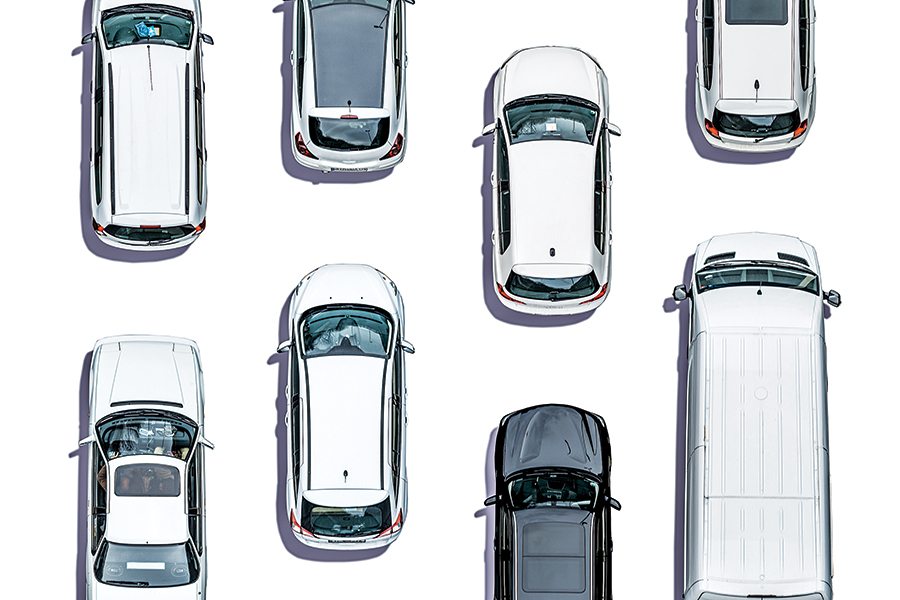
Bernhard Lang/Getty Images
Transportation
Who Has less Traffic?
There’s nothing like the smell of exhaust fumes and frustration in the morning. Captured this October, the average daily traffic volume at two points on traffic-clogged Storrow Drive and Memorial Drive tells the tale of two major parkways separated by the river.
Storrow Drive
South of Cambridge Street
74,000
Average Daily Traffic Volume
5,600
A.M. Peak Volume
5,900
P.M. Peak Volume
Memorial Drive
Between River Street and Pleasant Street
30,900
Average Daily Traffic Volume
2,500
A.M. Peak Volume
2,000
P.M. Peak Volume
Winner: If you’re looking at the number of cars—not traffic lights, which also cause congestion—Cambridge. But we wouldn’t recommend either road at rush hour. —B.J.
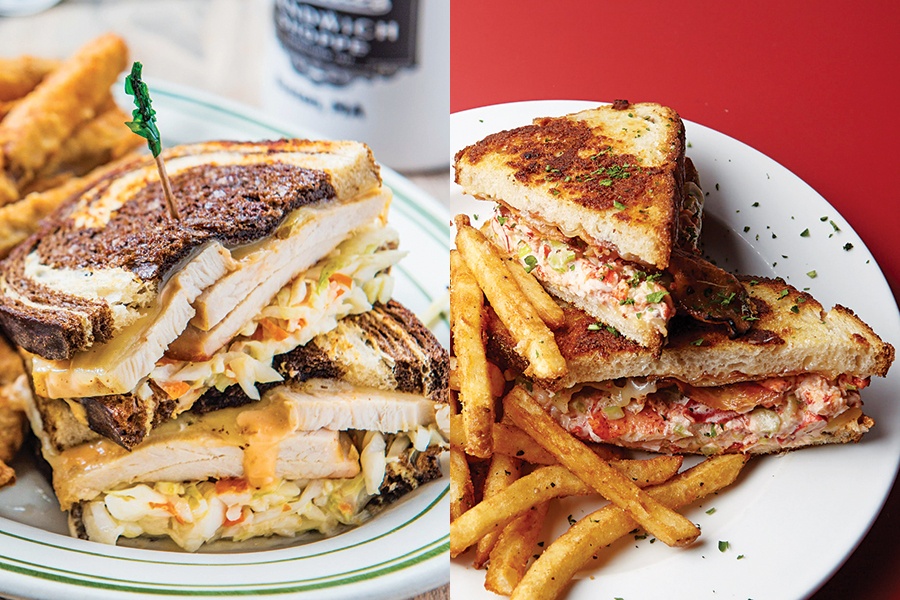
Photo by Jack Adams (Shoppe); Daniel Zapata (Kitchen)
Food
Charlie’s Sandwich Shoppe vs. Charlie’s Kitchen
For Charlie’s Sandwich Shoppe: James Beard Award–winning chef Joanne Chang loves the familiarity of Charlie’s Sandwich Shoppe, the South End’s breakfast-hash-slinging icon.
For Charlie’s Kitchen: James Beard Award–winning chef Jamie Bissonnette used to growl out plenty of Motörhead karaoke at Charlie’s Kitchen, Harvard Square’s punk-bar landmark.

Jamie Bissonnette / Photo by Josh Andrus
Jamie Bissonnette: When I first moved to Boston in the ’90s, the punk-rock kids that I hung out with loved Charlie’s Kitchen. We would go there for lunch. And once I started drinking, that was one of the bars. On Monday nights, our friends would book punk bands; there’d be live shows upstairs. Some of my personal CDs were in the jukebox. And I definitely participated in a fair amount of fisticuffs there.
Joanne Chang: Back when I was the pastry chef at Mistral, I was looking around at places to open my bakery, Flour. This was about 1999. I remember walking up and down that whole area, going into places to get to know the neighborhood. I got coffee and a muffin at Charlie’s Sandwich Shoppe; the place was a little weathered but bustling, and everyone was friendly and seemed to be having a good time.
JB: The Charlie’s Kitchen double jalapeño burger is in my top five. Once you pick it up and start eating it, you have to flip it over so the top bun is on the bottom, so it can absorb the grease. If you don’t flip it over, you can’t put it down. I love that.
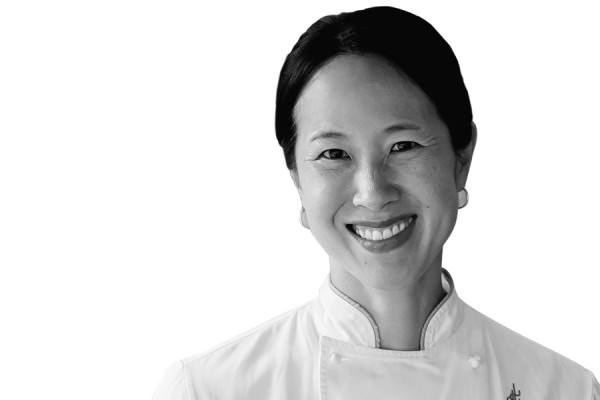
Joanne Chang / Photo by Kristin Teig
JC: A lot of classic diners and greasy spoons seem to be responding to what people want to eat today. Charlie’s Sandwich Shoppe is very clean, and the menu is really good; it still has a lot of the old classics, but now they also have, you know, avocado toast. You can tell that avocado is fresh!
JB: I’ve heard Charlie’s Kitchen’s owner is fanatical about waste; he’s also really into organic produce. This guy is running what is perceived as a greasy-spoon dive bar, and he’s caring about these things. That really affected me and made me think that restaurants with national notoriety have a responsibility to do it as well. That was a big impetus for us trying to go as green as we could at Toro.
JC: What you really want in a neighborhood place is consistency. That’s what we work to give people at Flour and Myers + Chang. So much has changed in Boston—and in restaurants—so fast over the years. A place like Charlie’s creates memories within a neighborhood. That’s so important: having a place everyone can go, and somewhere that feels like coming home even if you’ve moved away. —As told to Scott Kearnan
Winner: Cambridge—because choice dive-bar grub and good old-fashioned grit are getting harder and harder to come by these days.

Photo by Amy Sussman/Getty Images (Mark Wahlberg); Theo Wargo/Getty Images (Donnie Wahlberg); RB/Bauer-Griffin/Getty Images (Ben Affleck); Pascal Le Segretain (Casey Affleck)
Celebs
The Wahlbergs vs. The Afflecks
Mark and Donnie grew up on the mean streets of Dorchester, Ben and Casey on the mean streets of Central Square. Together, they’re among our biggest pop-culture exports. But which celeb first family represents us the best?
Movie awards
The Wahlbergs: Only Mark has managed to pull off a major win.
The Afflecks: A shelf’s worth of hardware between the two, including three Academy Awards and three Globes.
Advantage: It’s not hard to do the math. The Afflecks win, naturally.
Cinematic nadir
Wahlbergs: Mark’s top billing in Transformers: The Last Knight, a role that earned him a Razzie nomination.
Afflecks: Ben’s role in Gigli, opposite then-girlfriend J.Lo, one of the most expensive box office bombs ever.
Advantage: Wahlbergs. At least the part where Cybertron collided with Earth was kind of cool.
Brotherly sound bite
Wahlbergs: Mark on Donnie, before a NKOTB concert at Fenway: “If it wasn’t for him, I’d probably still be incarcerated somewhere right now.”
Afflecks: Ben on directing his bro: “You have to treat Casey as you would treat any actor in the movie, which meant trying to swallow the urge to strangle him.”
Advantage: Afflecks. Nothing says “I love my sibling” like the threat of bodily harm.
High-profile parodies
Wahlbergs: SNL’s “Mark Wahlberg Talks to Animals” had Andy Samberg recounting to a donkey how he produced Entourage.
Afflecks: The off-Broadway play Matt & Ben had Mindy Kaling tucking her hair into a backward cap to imitate Affleck.
Advantage: Afflecks, because we’re all for Cantabrigians spoofing Cantabrigians.
Winner: Cambridge. Around these parts, we’re all about prestige, and Casey and Ben bring home the trophies. —Alyssa Vaughn

Photo by Christian Horan Photography (One Dalton); Ivan Astar/Getty Images (MIT’s Stata Center)
ARCHITECTURE
One Dalton vs. MIT’s Stata Center
For One Dalton: Mark Pasnik, a principal at Boston-based OverUnder, recently edited a book written by the late Henry Cobb, the mastermind behind One Dalton.
For MIT’s Stata Center: Laura Homich, a principal at Cambridge’s Prellwitz Chilinski Associates, watched construction on the Frank Gehry–designed Stata Center in the early 2000s.

Mark Pasnik / Photo by Sam Rosenholtz
Mark Pasnik: I think One Dalton is the best skyscraper in Boston in the past 20 years. I see it as a very elegant, subtle, well-detailed, and urbane building. It’s not flashy, but it’s not bare-bones, either. I mean, it’s still a luxury building. I’m looking at it from my apartment right now; I see the sun glinting off the corner of it. Its geometries are subtle. It changes our skyline more than most other new skyscrapers have because it adds a third character to the Hancock and Prudential lineup. The High Spine was a concept in the ’60s for developing Boston that involved a spine of towers running roughly between the Back Bay and the South End. The idea was that this would allow the neighborhoods on either side of the spine to be preserved, but still allow development to happen. One Dalton punctuates, or even continues, that spine nicely.
Laura Homich: When you look at the Stata Center, it’s a jumbled mess. I mean, it’s pretty chaotic. It’s definitely disruptive. And I think that was the point of it. It will make you pause to think about it as opposed to just walking by. And you can get close to the building in a different way, because it’s not just a flat plane.
MP: I tend to prefer architects who have a little bit more control and rigor in their work, and Frank Gehry isn’t about either of those things. I respect the Stata Center for being a building about expressiveness, but I think that if we built every building like that, it wouldn’t be a good thing for the area.
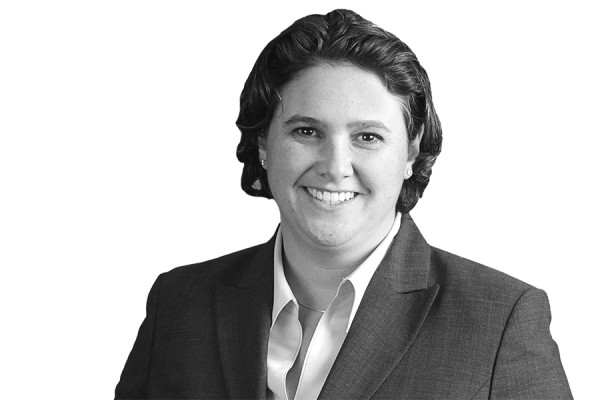
Laura Homich / Photo by Mark Eclipse/PCA
LH: What makes the Stata Center an impressive building is that it just burst open a level of creativity that we hadn’t seen for so long. With Frank Gehry, you’re going to get something a little less of the norm. It’s not going to just be straight. One Dalton is a nice building, but you could build it multiple times in multiple locations. It could have been in New York; it could have been anywhere. Except for the height, it’s pretty much like any other building in the city skyline.
MP: One Dalton is restrained because it’s part of the skyline. It does a better job of reflecting the aspirations Boston has. I would love to see more towers with that high level of thought in them. —As told to Sofia Rivera
Winner: Boston. Funky architecture is great, but it’s about time the John Hancock and Pru had some contemporary company all the way up there.
NIGHTLIFE
The Grand vs. Hong Kong Harvard Square
Pump your fists in a haze of neon and fog, or share a scorpion bowl in a room lined with Christmas lights? Painting the town in Boston and Cambridge means two very different things.
How swanky is the place?
The Grand: Expect flashing laser lights and trippy projections on a 70-foot LED wall.
Hong Kong: Complimentary toilet paper in the bathrooms. Fancy!
Advantage: The Grand earns its name.
How’s the dating pool?
Grand: The crowd is sexy, well dressed, and here to have fun. Dive in.
HK: Are there cute coeds? Sure. But you’re old enough to be their guidance counselor, creep.
Advantage: Unless you have sugar daddy/mama aspirations, the Grand is the spot.
What am I dancing to?
Grand: Relentless, thumping EDM that imports Ibiza vibes to Boston’s Seaport.
HK: Mainstream pop and hip-hop, plus party-pumping throwbacks (assuming Outkast is your idea of “retro”).
Advantage: Hong Kong. Sometimes you just wanna shake it like a Polaroid picture.
What am I drinking?
Grand: Vodka Red Bulls on the dance floor.
HK: Scorpion bowls peppered with straws, for sharing the sweet sting of all that rum.
Advantage: Hong Kong. The drinks are cheap, effective means to an inebriated end.
Is there live entertainment?
Grand: Yeah, bruh. A-list global DJs such as Tiësto and Galantis spin here on the regular.
HK: Passionate warbling of “Don’t Stop Believin'” fill the karaoke bar. Are you not entertained?
Advantage: As a rare local club to book Vegas headliners, the Grand gets our cover charge.
Winner: Boston. Hong Kong has its charms, but if you’re gonna go out, go big—or rather, go Grand. —S.K.
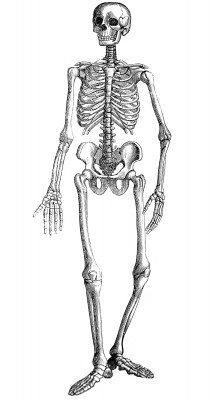
Photo by Vladi333/Getty Images
HISTORY
Who Has Better Ghosts?
In an area rich with so much history, there are more than a few, er, famous skeletons in the proverbial closet. But which side of the river has the more distinguished spirits?
Granary Burying Ground Boston
• Midnight Rider Paul Revere
• Revolution-era Governor
John Hancock
• James Otis, of “No taxation without representation” fame
• Samuel Adams
• Boston Massacre victim Crispus Attucks
Mount Auburn Cemetery Cambridge
• Journalist and women’s rights advocate Margaret Fuller
• Museum steward Isabella Stewart Gardner
• Architect Charles Bulfinch
• Poet Henry Wadsworth Longfellow
• Artist Winslow Homer
Winner: Boston. While it’s no surprise that Cambridge houses more creative types, Boston wins the prize as the birthplace—and the final resting place—of the American Revolution. —Morgan Hume
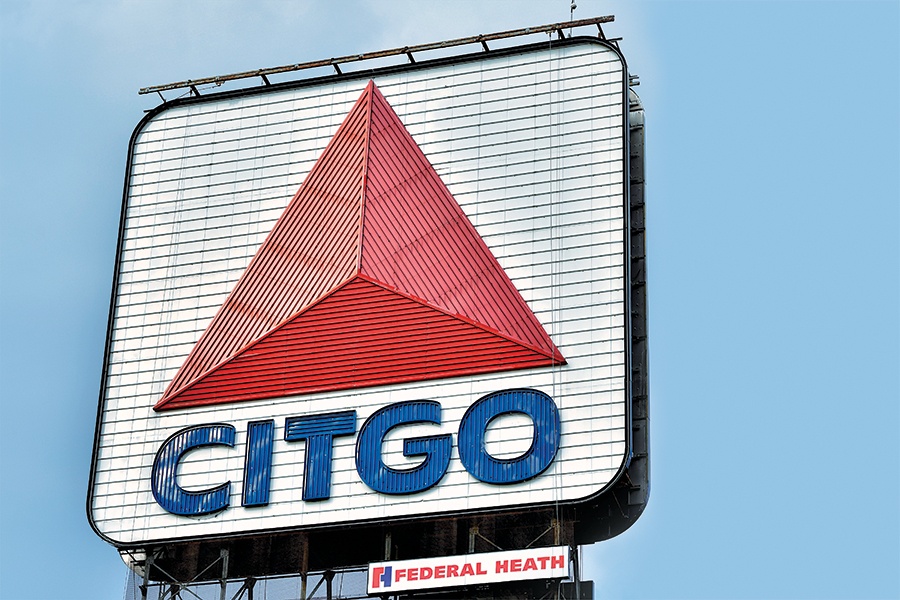
Photo by Paul Manotta
You know you’re from Boston if…
The closest you’d come to moving to the suburbs is West Roxbury.
Your North Star is the Citgo sign.
You walk around the Seaport muttering, “This used to be a parking lot.”
You’ve used a plastic lawn chair to save your space after digging your car out from a snowstorm.
You’ve furnished your apartment on Allston Christmas.
You shudder when people call Boston “Beantown.”
You remember Lansdowne Street before it was Red Sox Disney World.
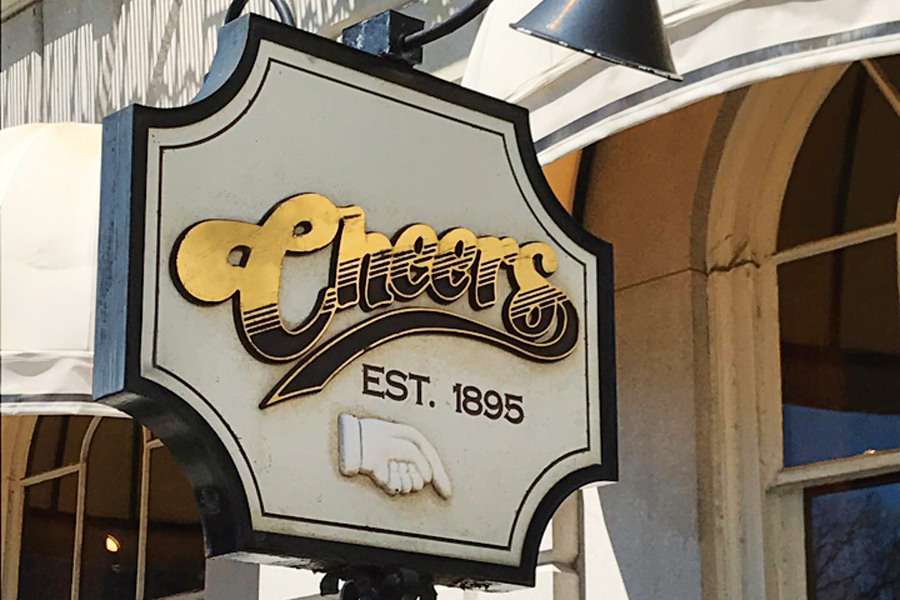
Photo via Facebook
Your accent makes you sound like Cliff from Cheers.
You’d wait two hours to get a $3 hot dog from Sully’s.
You still refer to the Greenway as Surface Road.
You know the difference between Boston Latin and Boston Latin Academy.
You shed a tear when you heard Doyle’s was closing.
You grew up listening to New Edition.
You wear Bean boots on rainy days.
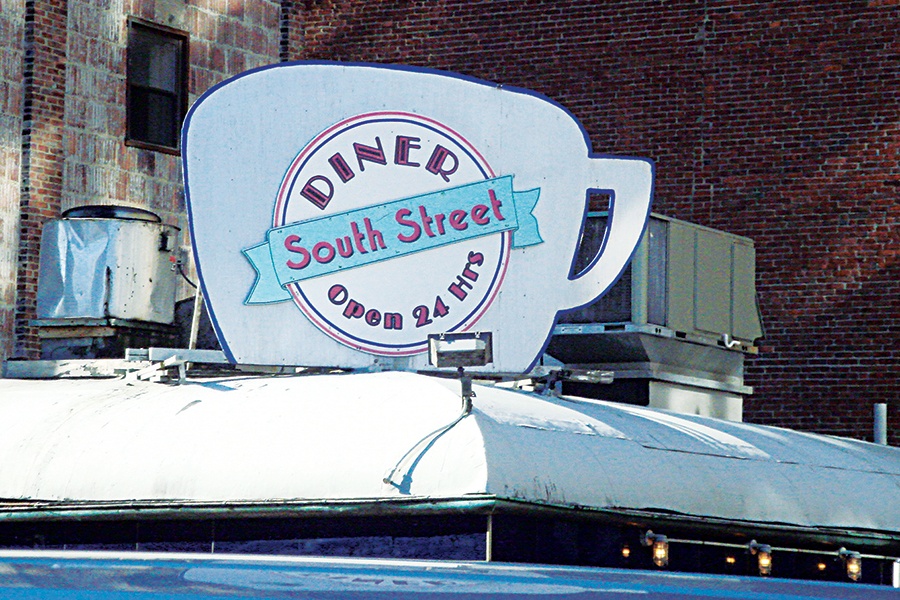
Photo via Wikipedia
You spend your late nights at the South Street Diner.
You get your Halloween costumes from Dorothy’s.
You rarely—if ever—cross the Charles.

Photo by Joe Sohm/Visions of America/ Getty Images
You know you’re from Cambridge if…
Your accent makes you sound like Frasier from Cheers.
You have a story about how you ran into Juliana Hatfield or Noam Chomsky at Whole Foods.
You can name every Harvard Square restaurant, store, or bar mentioned in Goodwill Hunting that has closed since the movie was released.
You know there’s no such thing as pahking your cah in Hahvad Yahd.
South Shore and Cape beaches seem unreachable.
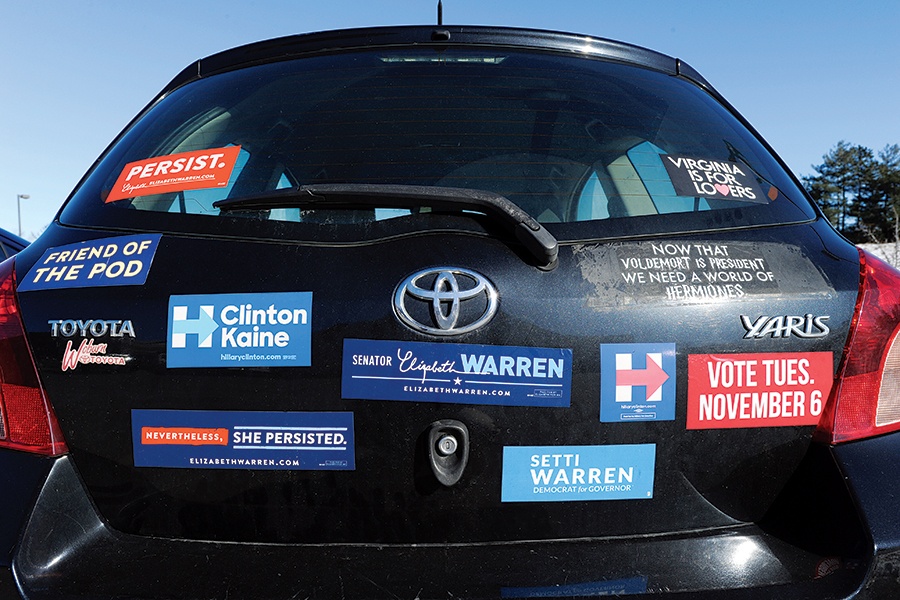
Photo by Joseph Prezioso/AFP via Getty Images
You drive a Prius or a Subaru with a faded Warren for Senate sticker on it.
It’s at least partially your kids’ fault that Walden Pond is filled with urine.
You always carry your reusable grocery bags when you go to the market and have your pointer finger at the ready when your neighbor doesn’t put her curbside compost bucket out on trash day.
You constantly correct people who lump Cambridge into Boston when talking about the time they “went to Boston to visit Harvard and MIT.”
All of your friends are retired punks with minivans now.
Forget the blockbuster at the local multiplex—you grew up seeing French New Wave films at The Brattle.
Your North Star is the Shell Sign.
You get your Halloween costumes from The Garment District.
You wear crocs on rainy days.
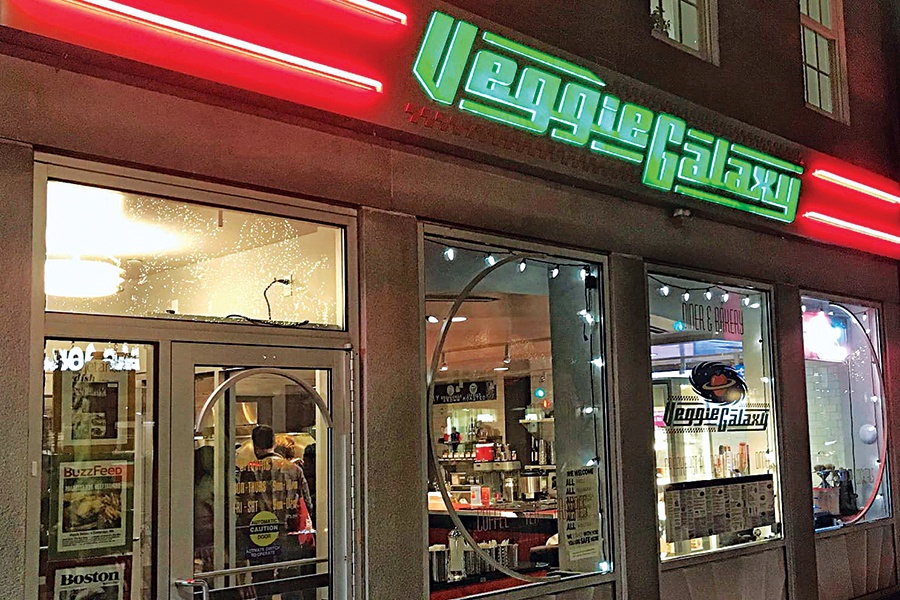
Photo via Flickr/Creative Commons
You spend your late nights at Veggie Galaxy.
You shed a tear when you heard Out of Town News was finally closing.
You rarely—if ever—cross the Charles.
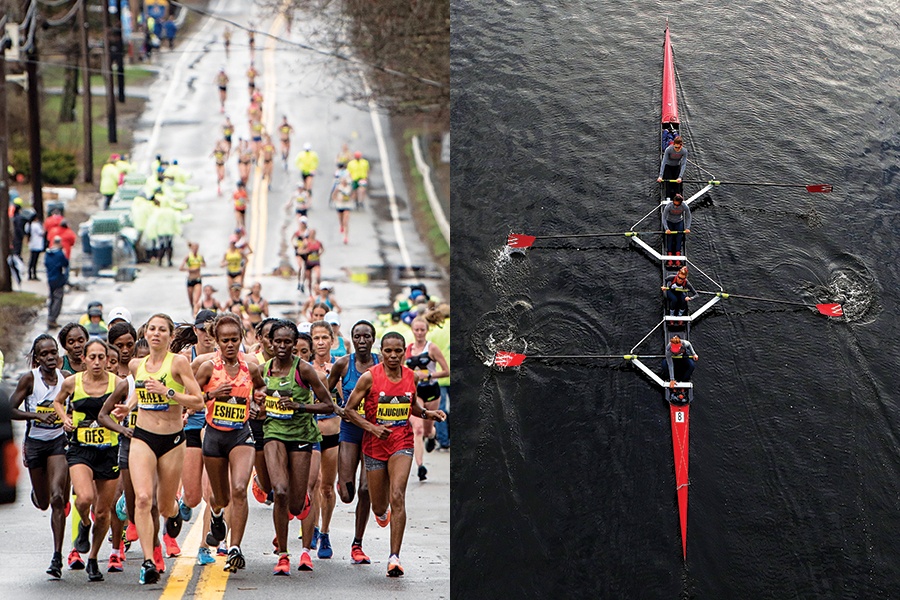
Photo by MediaNews Group/Boston Herald via Getty Images (The Boston Marathon); Maddie Meyer/Getty Images (Head of the Charles Regatta)
EVENTS
The Boston Marathon vs. The Head of the Charles Regatta
For the Boston Marathon: Patriots legend Tedy Bruschi has run the marathon in support of Tedy’s Team, a foundation that raises awareness of stroke and heart disease.
For the Head of the Charles Regatta: Comedian Lenny Clarke grew up in Cambridge, where the regatta’s HQ is based, and once swiped a boat during the Head of the Charles.
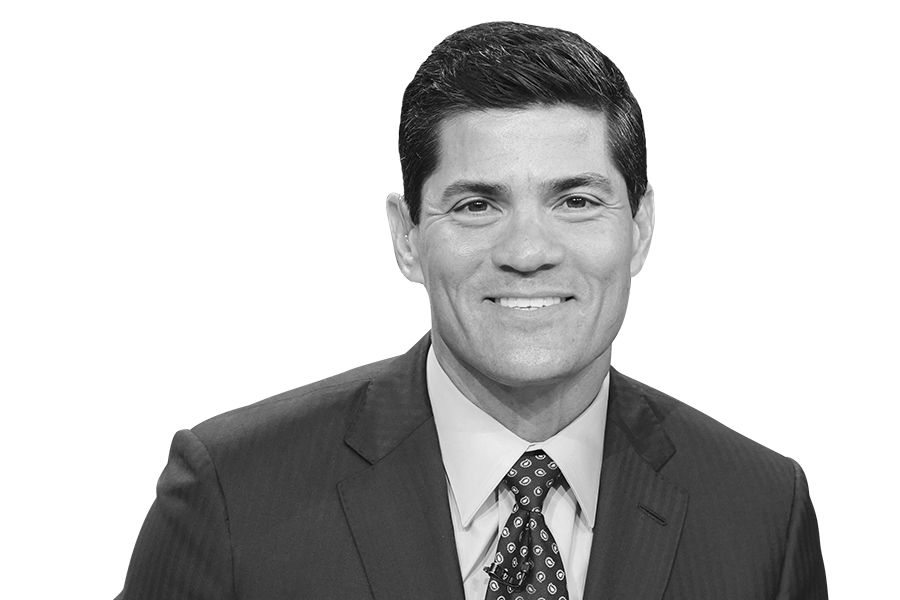
Tedy Bruschi / Photo by Sam Rosenholtz
Tedy Bruschi: I remember me and Tom Brady being on a treadmill once and watching the marathon on TV. We had a conversation like, “That’s something we should do someday.” Athletes being as competitive as we are, you wonder if you could push yourself that hard. I’ve run the marathon three times since then.
Lenny Clarke: As a kid, we knew the regatta was coming up and we thought, Wouldn’t it be funny if we grabbed one of these boats? I forget which boathouse it was, but we went down the night before and carried one off, a four-seater. We were doing really well until a guy in a motorboat came up and said, “Hey, you kids don’t belong in that boat!” Cambridge is made up of the townies and the gownies—this was our way of sticking it to them.
TB: I describe the marathon as a 26.2-mile stadium, because the participation is so incredible. I don’t think you can have someone from the regatta throw you an orange from behind the ropes. Or say, “Hey, Tedy, look,” and throw you a football. That type of encouragement is so unique to the marathon. It must feel like you’re alone out there at times, rowing on the river.
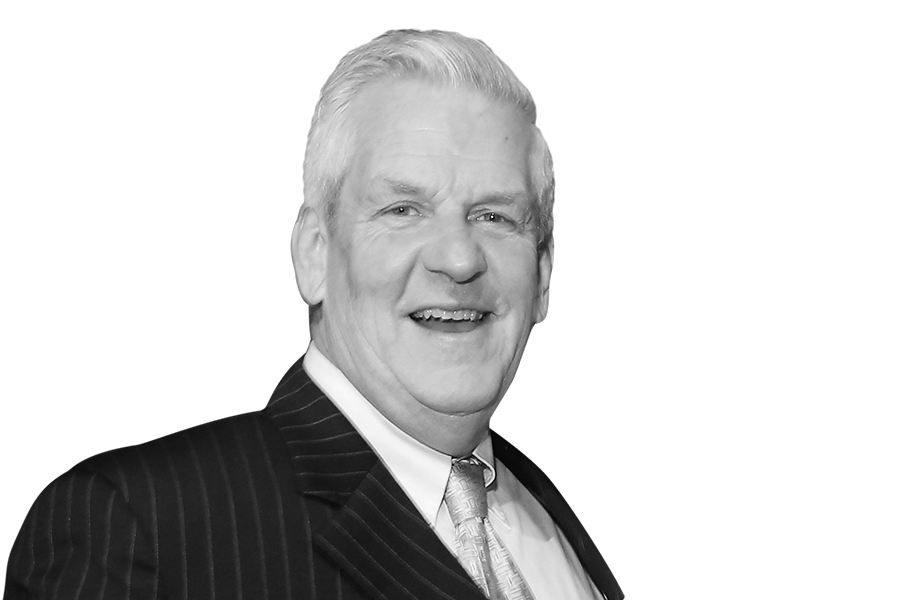
Lenny Clarke / Photo by Scott Eisen/Stringer/Getty Images
LC: The Head of the Charles is an amazing race that draws people from all over the world. The regatta fans, they do it up right: They bring coolers and tailgate along the river. You can actually sit down and watch the boats go by. At the marathon, you’re jammed in 40-deep hoping you spot your cousin’s boyfriend’s brother Tommy running by with a number.
TB: I don’t see the comparison, really, between what the marathon and the regatta mean to the area. The marathon is mental, it’s physical, it’s emotional, and for all of those things to come to fruition once you cross the finish line is a very unique, almost spiritual experience. You get an incredible sense of accomplishment, especially the charity runners, knowing that you just put your life on hold for however many months you’ve been training and raising funds for whatever charity you’ve emotionally attached to.
LC: The marathon is so damn serious. To qualify, you have to have run another marathon, you have to have a certain time. 26.2 miles—geez, I can’t drive that far without getting out to go to the bathroom. With the regatta, all you need is a boat and you’re in. —As told to Brittany Jasnoff
Winner: Boston. Marathon Monday—a.k.a. Patriots Day—is a state holiday, after all.
POLITICS
Mayor vs. Mayor
Boston Mayor Marty Walsh’s job comes with vast power, responsibility, and visibility, while Cambridge Mayor Sumbul Siddiqui’s…does not. Who has the best overall gig? That’s a trickier one to call.
Where’s HQ?
Boston: A controversial Brutalist icon with a wretched backyard that’s getting a much-needed facelift.
Cambridge: A staid 130-year-old Romanesque building with a 158-foot-tall bell tower and a lovely lawn.
Advantage: Boston. What mayor wouldn’t want the chance to fix up that plaza?
How’s the pay?
Boston: Pretty, pretty good: $199,000.
Cambridge: Not bad! $124,829.
Advantage: Boston, obviously.
Who calls the shots?
Boston: As a so-called “strong mayor,” Walsh is in charge, although an increasingly energized city council is closing in.
Cambridge: The power is a little more spread around. The city council is really in charge, acting like a board of directors, and the city manager is essentially the CEO. The mayor oversees meetings and ceremonial duties.
Advantage: Boston, because no one likes too many cooks in the kitchen.
Campaign war chests
Boston: A fearsome $5.5 million in cash on hand.
Cambridge: A paltry $15,000.
Advantage: Cambridge. You can’t take money out of politics when there is none.
Winner: Boston. While there’s something to be said for a more understated role, Walsh’s brings the opportunity to have a lot more influence over a lot more people. —Spencer Buell
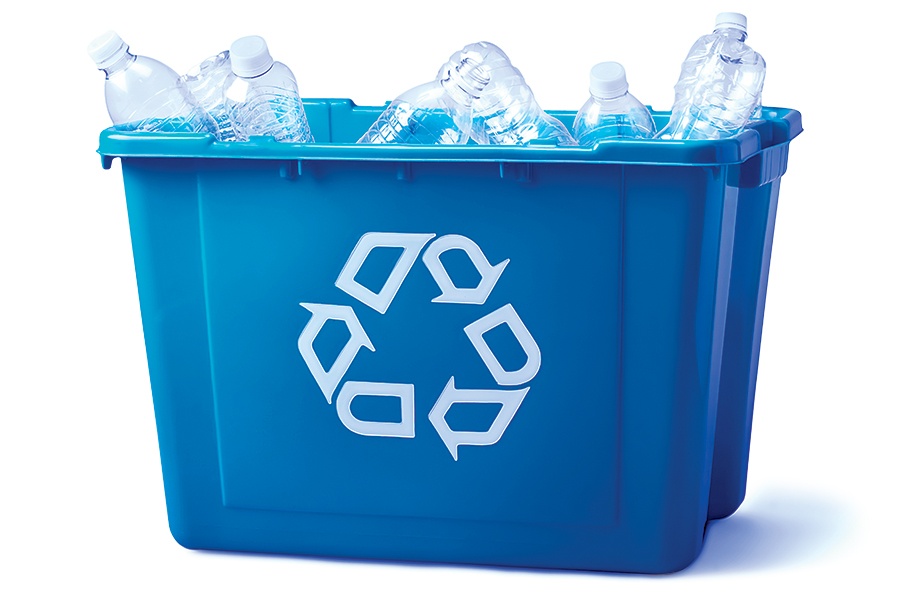
Photo by Burazin/Getty Images
ENVIRONMENT
Who REALLY Loves Mother Earth?
Both cities have banned plastic bags and encouraged sustainable building. But which wins the gold for going green?
Electricity usage per household
Boston: 5.11 MWH
Cambridge: 4.6 MWH
Annual greenhouse gas emissions per person
Boston: 8 metric tons
Cambridge: 10 metric tons
Average annual trash disposal per household
Boston: .69 tons
Cambridge: .40 tons
Average annual recyclables per household
Boston: .14 tons
Cambridge: .19 tons
Winner: Cambridge. With the exception of greenhouse gas emissions, the famously crunchy city lives up to its reputation. —A.T.
Environment sources: U.S Department of Energy; Boston Public Works; Cambridge Community Development Department
Overall Winner:
Drumroll, please…it’s a tie! One town has the tech talent and cooler celebs; the other has the political power and more big-city fun. In other words, this sibling rivalry is just too close to call.


